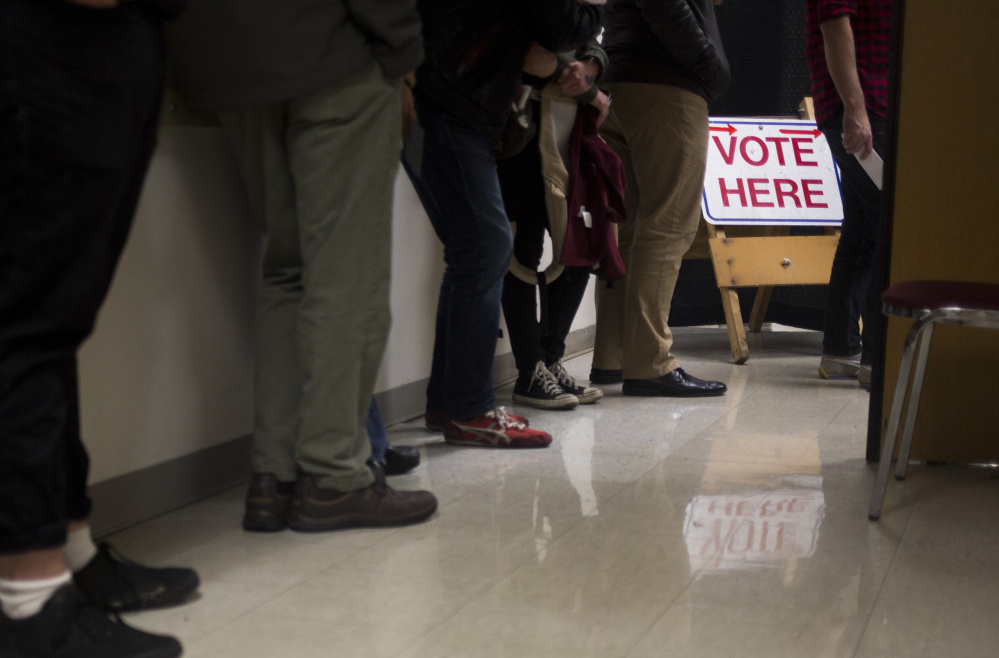Maine Republicans just can’t resist revisiting decisions made by Maine voters. Gov. LePage kicked off his attempt to overturn a statewide minimum-wage increase in December, just a month after it was passed. Now two Republican legislators want to stop gubernatorial candidates from being funded through the voter-approved Maine Clean Election Act. This proposal represents a step backward for transparency and accountability, and lawmakers should reject it.
The Clean Election Act – which allows candidates to qualify for public financing by collecting small donations – has been supported at the ballot box twice: in 1996, when it was created, and then again in 2015, when voters backed a proposal to expand the amount of money available to candidates, tighten penalties for campaign finance violations and require groups that buy political ads to disclose their top three donors.
Because of that 2015 referendum, gubernatorial candidates can now draw on $1 million in public funds during the primary and $2 million in the general election – and that’s just too much in a cash-strapped state like Maine, say Reps. Joel Stetkis of Canaan and Paula Sutton of Rockland, the co-sponsors of L.D. 300.
Stetkis pointed out at Friday’s hearing on the bill that the state’s court security system is struggling to recruit security personnel because the pay is too low. Sutton calls the idea of public financing for Blaine House hopefuls “completely absurd.”
But although memorable, the legislators’ rhetoric overlooked the fact that they’re not talking about an unfunded mandate. The Clean Election overhaul was designed by its advocates to draw on funds from the elimination of “low-performing, unaccountable” corporate tax breaks. (One infamous example – the New Markets Capital Investment Credit – took $16 million in taxpayer money meant to revive a northern Maine paper mill and funneled it to out-of-state financiers instead.)
There are 59 such programs in Maine. They cost the state $300 million a year. And we don’t know whether or not they’re contributing to economic growth. Thankfully, the state Office of Program Evaluation and Government Accountability is in the middle of scrutinizing these incentives. Based on data gathered by the watchdog agency and a legislative panel’s recommendation, the programs that don’t live up to performance standards will be identified, thus freeing up money to help support the Clean Election expansion.
The Clean Election Act has been working for Maine voters. Studies show that it makes races more competitive – which is especially important when you’re picking the state’s chief executive – and helps offset the growing influence of big-money donors. There’s no reason to try to undercut it now.
Send questions/comments to the editors.



Success. Please wait for the page to reload. If the page does not reload within 5 seconds, please refresh the page.
Enter your email and password to access comments.
Hi, to comment on stories you must . This profile is in addition to your subscription and website login.
Already have a commenting profile? .
Invalid username/password.
Please check your email to confirm and complete your registration.
Only subscribers are eligible to post comments. Please subscribe or login first for digital access. Here’s why.
Use the form below to reset your password. When you've submitted your account email, we will send an email with a reset code.